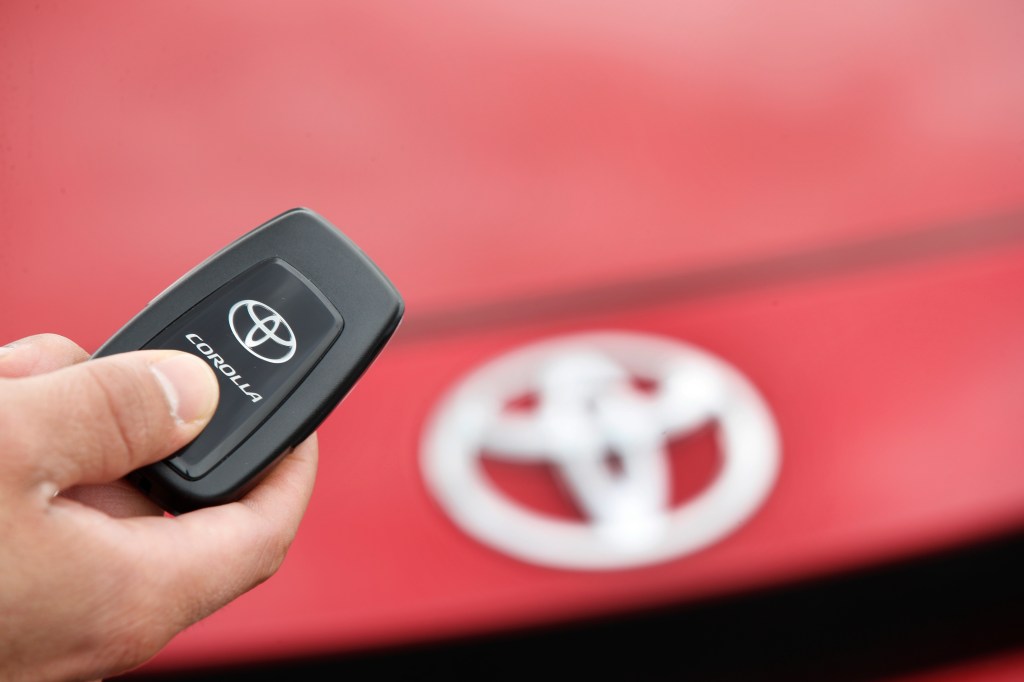
What Is the Point of Car Alarms?
Sometimes if you hear something frequently enough, you start to tune it out. Unfortunately, that includes car alarms going off. Car alarms have a reputation for starting their annoying blaring when trucks drive past or a kid’s ball or bike bumps the car. So what is the point of car alarms and do they improve car safety?
The purpose of car alarms
Car alarms were designed to prevent car robberies. First invented about a hundred years ago, they grew in popularity between the 1960s and 1990s. But, they turned out not to be too effective.
When car alarms were a newly popular feature, people were more likely to check on the cause of the sound, says CarLock. It’s very easy to have a lot of false alarms, though, which has encouraged people to ignore the sounds going off.
People often disregard the alarm, assuming that it went off because it was too sensitive or was set off by mistake by the car’s owner. The Atlantic points to a study from the 1990s that found that 95 percent to 99 percent of the time when a car’s horn goes off that it’s a false alarm.
A study from 1997 cited by The Atlantic showed that cars that have car alarms “show no overall reduction in theft losses.” Dr. Peter Frise, the director of AUTO21, a Canadian government-funded research group on the auto industry, said to The Atlantic.
“Frankly, I think they’re a waste of money.”
On top of that, car alarms also wake people up and make a stressful and annoying sound.
Are car alarms effective?

The car alarm doesn’t end up deterring thieves. While some thieves might skip a car that has a car alarm, many assume that no one will respond to the sound anyway, giving them time to go ahead and steal the car even while the warning sounds are going off.
In addition, today’s thieves also have high-tech ways to avoid setting off the alarm. CarLock explains that thieves can “clone the keys or use transmitters and relays to mimic the signal of the car’s keys.” They’re then able to get into the car and start it up without setting off the alarm at all. The necessary high-tech devices aren’t that hard to get either.
Other ways to prevent cars from being broken into
Not that many cars manufactured today include a warning system, although drivers still have aftermarket car alarms added. Since they’re $20 or $30 (and up to several hundred), they are an affordable option for drivers hoping to add security.
There are other options that car owners can use to decrease the risk of a break-in or at least help get their car back. There are silent alarms that send a car’s GPS location to the owner without alerting thieves, helping owners locate their cars after a theft.
CarLock is one of these options. With this small device installed in a car, the driver is able to monitor the car remotely. Notification alerts will be sent to a phone app. A notification is sent if the engine is started, and the owner can track the car as it moves.
There are other alerts as well for speeding, harsh driving, and low battery, among others. The device is about $50 plus a monthly subscription.
Immobilization systems that can be built into cars cost about $500, but they come standard in many new cars. They require the car key (which has a digital chip) to be inserted or the engine won’t start. There are also ways to install a kill switch to disable parts of the car. And, there’s still the affordable option of the steering wheel lock or the tire lock.
It seems that there isn’t much point these days in having an alarm in your vehicle. Buyers also can’t assume that their new car will automatically come with a car alarm installed. But there are other options to consider for drivers who are worried about break-ins or car theft.


